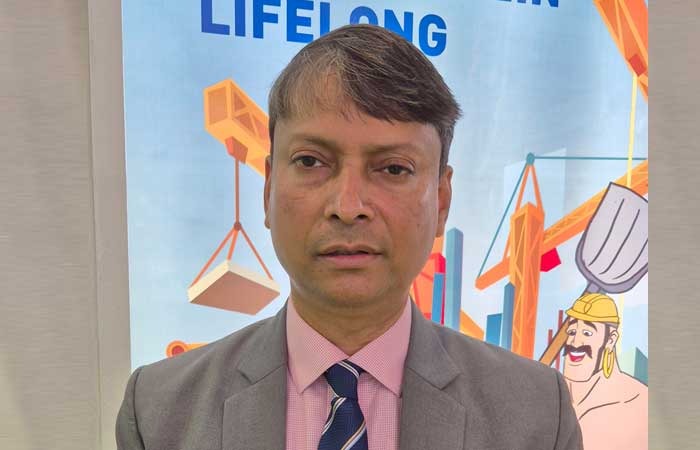
We are a fully “Made in India” company
Tell us about your company and its major products.
We are a 41-year-old manufacturing and distribution company specialising in Personal Protective Equipment (PPE). We started in 1983 as a small leather gloves manufacturer in Kolkata. Over the next few decades, we diversified into other PPE segments like head protection, hand protection, body protection, and feet protection. Since then, we’ve been supplying our products both across India and overseas. Currently, we have about 85 dealers around the world and are present across all six continents in 75 countries. In Asia and Africa, we supply products under our own brands, Malcolm and Tiger. In the rest of the world, we supply as a white-label provider. Our current turnover is about Rs 4 crore. We are primarily prevalent in industries like aviation, automobiles and ancillary sectors, oil and petrochemicals, gas, and mainly the construction sector.
Are these products completely manufactured in India?
We are a fully “Made in India” company. We have 11 manufacturing facilities in West Bengal, two in Gujarat, and one in Uttarakhand.
The locations of our manufacturing facilities are strategically chosen. PPE is a voluminous product, and for ease of transportation, shipping via containerised units (CUAs) is the most efficient way to move our products worldwide. That’s why we carefully select locations that allow us to streamline operations and ensure efficient distribution.
How do you view the market for your products in India?
The PPE segment has been growing at around a 20 per cent CAGR for the past decade. This growth is largely due to increased awareness and the rising demand for good quality, certified products across the country. A lot of credit for this shift goes to the government, which has been implementing regulations more strictly, especially in underdeveloped sectors. There’s been an increasing focus on the welfare of migrant labourers, which has further heightened the need for certified quality products. We are one of the few companies in this sector producing certified products.
Are you doing anything to create awareness about your products?
On a regular basis, we conduct technical symposiums and seminars in industrial hubs across the country. We invite Environmental Health and Safety (EHS) professionals to these events so they can learn about the products we develop and also about industry-wide innovations. We also provide technical training, hazard training, and safety training to ensure professionals are well-equipped with the knowledge they need.
What challenges are you currently facing in the market? How are you working to overcome this challenge?
One of the main challenges is the influx of cheaper imports, particularly from China. These products don’t meet certified standards, but they are often priced lower, which makes it difficult for us to compete. We never compromise on quality, and that can make it tough to convince buyers to opt for a higher-quality but more expensive product. This is one of our biggest challenges. Additionally, while awareness is growing, there’s still a long way to go. The government, industry associations, and companies like ours have a major role to play in raising awareness.
We focus on educating customers about the quality differences between the cheaper imports and our products. Many of these cheaper imports contain harmful carcinogenic materials, which pose long-term risks to end users. We educate customers about the health risks and the benefits of using certified, high-quality products. We also engage in advocacy, working with industry representatives to convince the government to take action against the import of poor-quality products. These efforts are crucial in helping people understand the importance of choosing certified products.
How was the business in 2023? What are your plans for the future?
As a company, we’ve been growing at around 20 per cent for the last four to five years. Moving forward, we plan to expand further, especially in the Middle East. While we are already present in all the major GCC countries, we aim to penetrate these markets more deeply.
What is your market strategy?
Our strategy is simple: we focus on providing only quality products to customers who understand the value of good quality and are willing to invest in it. We don’t cater to the cheaper segment, and we don’t aim to supply lower-quality products. We prioritise quality and trust that customers who value safety and durability will choose our products.


 +91-22-24193000
+91-22-24193000 Subscriber@ASAPPinfoGlobal.com
Subscriber@ASAPPinfoGlobal.com